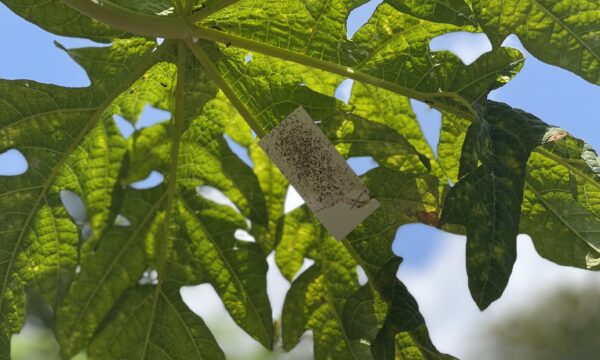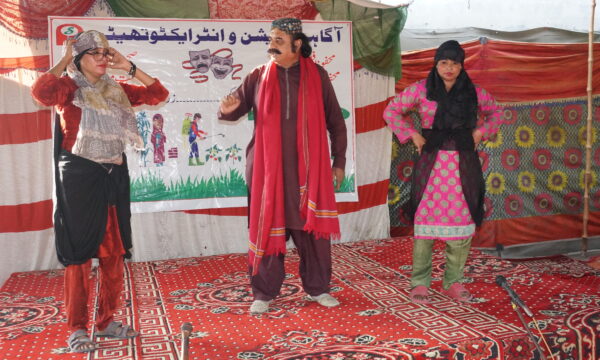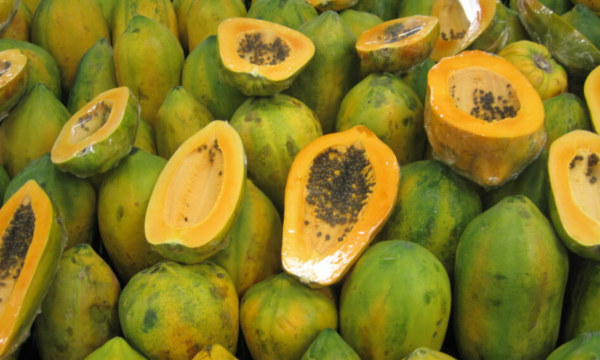
The 1990’s saw some significant steps made towards equality, democracy and sustainable living. Perhaps the thing that made the biggest impact on me was the ‘Girl Power’ movement, led by none other than the Spice Girl’s – their music might have been questionable, but they certainly made an impact. Fortunately for the rest of society, the 1990’s also saw a few other movements towards this: as President of South Africa Nelson Mandela focussed on ending poverty and inequality, environmental organisations came into their own, and 1992 saw the first ever Rio Earth Summit, where meetings were held to ensure global efforts were made towards a sustainable future for an increasing human population. This year there has been another surge of activity towards empowering women and appreciating the role they play in agriculture and food security. But has this been enough to make an impression on leaders in time for this year’s Rio+20 event, or will we all be left feeling like it was just a one hit wonder?
Back in August, Steven Forrest wrote about the importance of women in agriculture, the differences they could make to the future of the world’s food security, and how Plantwise is working to ensure they are reaching all those who need their help (read more about Increasing Food Security and Empowering Women here). Since then, events have happened all around the world to raise awareness of the difficulties faced by many women (and children) left to farm in uncertain circumstances. 8th March saw the UN’s International Women’s Day, which had the theme of ‘Empower rural women – end poverty and hunger’ while last week (13th-15th March) saw the Global Conference on Women in Agriculture held in India. The International Food Policy Research Institute (IFPRI) have published a report on Engendering Agricultural Research, Development and Extension, and the World Bank published ‘Gender Equality and Development‘. Other events with wider themes have also been held, like the Philippine Commission on Women (PCW) National Women’s month, which focussed on women and climate change – yet another factor to add in to the difficulties of yielding a good crop.
So will this issue be taken to the highest levels at this year’s Earth summit? UN Secretary-General Ban Ki-moon has already agreed that “To transform agriculture and food systems, all stakeholders should be involved in decision-making, especially women and small-scale farmers and food producers”. At a guess, I’d say the number of small-holder women actually invited to the summit is small to none, and so they will be relying on politicians to get their points across and to make good decisions on their behalf. The momentum is clearly here for making positive changes to the support system in place for women in agriculture, and so now would seem like the ideal time for our leaders to make their stand, too. While I’m not suggesting that representatives turn up in short dresses replicating the flags of their chosen countries, or with aliases that might indicate some of their keen interests (“farmer spice” meets “pest spice”), I do hope that the build-up of events earlier this year is enough to see a ‘spice girl revolution’ of a different kind.
Keep an eye out for more updates as Rio+20 approaches!
For more information check out the links in the article above and more below:
Cameron, K., Call for support for sustainable smallholder agriculture, Plantwise blog, 9 June 2011
Nierenberg, D., International Women’s Day: 12 Innovations that are Helping Women Nourish the Planet, Civil eats, 8 March 2012
Africa: Women Vital in Ending Hunger – Study, allAfrica, 19 March 2012
Food: Reduce hunger, nurture women farmers, Spero News, 8 March 2012
Neglecting prominent role of women in agriculture hindering solutions to food security, EurekAlert!, 13 March 2012
The State of Food and Agriculture – Women in Agriculture, Closing the gender gap for development, 2010-2011 report by the FAO
The World Development Report 2012, Gender Equality and Development by the World Bank
Related News & Blogs
‘Sowing the seeds’ for food security in Uganda: CABI supports training for Quality Declared Seed production
CABI has been working with Zirobwe Agali-Awamu Agribusiness Training Association (ZAABTA), the Ministry of Agriculture, Animal Industry and Fisheries (MAAIF), the National Agricultural Research Organisation (NARO), and Integrated Seed Sector Developmen…
21 May 2025




